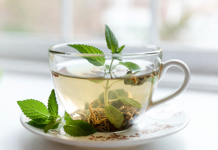Coffee is health food: Myth or Fact? Coffee may taste good and get you going in the morning, but what will it do for your health?
A growing body of research shows that coffee drinkers, compared to nondrinkers, are less likely to have type 2 diabetes, Parkinson’s disease, dementia, and have fewer cases of certain cancers, heart rhythm problems, and strokes.
“There is certainly much more good news than bad news, in terms of coffee and health,” says Frank Hu, MD, MPH, PhD, nutrition and epidemiology professor at the Harvard School of Public Health.
Researchers don’t ask people to drink or skip coffee for the sake of science. Instead, they ask them about their coffee habits. Those studies can’t show cause and effect. It’s possible that coffee drinkers have other advantages, such as better diets, more exercise, or protective genes.
So there isn’t solid proof. But there are signs of potential health perks — and a few cautions.
If you’re like the average American, who downed 416 8-ounce cups of coffee in 2019 (by the World Resources Institute’s estimates), you might want to know what all that java is doing for you, or to you.
In 2005, Hu’s team reviewed nine studies on coffee and type 2 diabetes. Of more than 193,000 people, those who said they drank more than six or seven cups daily were 35% less likely to have type 2 diabetes than people who drank fewer than two cups daily. There was a smaller perk — a 28% lower risk — for people who drank 4-6 cups a day. The findings held regardless of sex, weight, or geographic location (U.S. or Europe).
How might coffee keep diabetes at bay?
“It’s the whole package,” Hu says. He points to antioxidants — nutrients that help prevent tissue damage caused by molecules called oxygen-free radicals. “We know that coffee has a very strong antioxidant capacity,” Hu says.
Coffee also contains minerals such as magnesium and chromium, which help the body use the hormone insulin, which controls blood sugar (glucose). In type 2 diabetes, the body loses its ability to use insulin and regulate blood sugar effectively.
It’s probably not the caffeine, though. Based on studies of decaf coffee, “I think we can safely say that the benefits are not likely to be due to caffeine,” Hu says.
Coffee may also counter several risk factors for heart attack and stroke.
In a study of about 130,000 Kaiser Permanente health plan members, people who reported drinking 1-3 cups of coffee per day were 20% less likely to be hospitalized for abnormal heart rhythms (arrhythmias) than nondrinkers, regardless of other risk factors.
And, for women, coffee may mean a lower risk of stroke.
In 2009, a study of 83,700 nurses enrolled in the long-term Nurses’ Health Study showed a 20% lower risk of stroke in those who reported drinking two or more cups of coffee daily compared to women who drank less coffee or none at all. That pattern held regardless of whether the women had high blood pressure, high cholesterol levels, and type 2 diabetes.
Parkinson’s and Alzheimer’s Diseases
“For Parkinson’s disease, the data has always been very consistent: higher consumption of coffee is associated with decreased risk of Parkinson’s,” Hu tells WebMD. That seems to be due to caffeine, though exactly how that works isn’t clear, Hu notes.
Coffee has also been linked to lower risk of dementia, including Alzheimer’s disease. A 2009 study from Finland and Sweden showed that, out of 1,400 people followed for about 20 years, those who reported drinking 3-5 cups of coffee daily were 65% less likely to develop dementia and Alzheimer’s disease, compared with nondrinkers or occasional coffee drinkers.
Cancer
The evidence of a cancer protection effect of coffee is weaker than that for type 2 diabetes. But “for liver cancer, I think that the data are very consistent,” Hu says.
“All of the studies have shown that high coffee consumption is associated with decreased risk of liver cirrhosis and liver cancer,” he says. That’s a “very interesting finding,” Hu says, but again, it’s not clear how it might work.
So what say you? Coffee is health food: Myth or Fact?
Sound off in the comments below.







